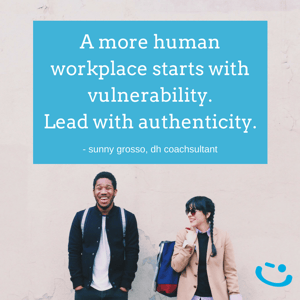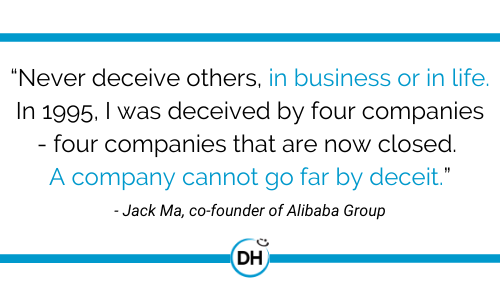
Authenticity is a trending topic. In all areas of life, we can see that people want to be more open to expressing themselves freely, leaving aside social standards and protocols. One of the most viewed TED presentations is Brene Brown's wonderful and inspiring talk about the power of vulnerability and its relationship to authenticity.
Are leaders paying attention to this trend and bringing authenticity to the way they lead? Are you?
There is a line of research on leadership and management focused on Authentic Leadership, which defines it as “a transparent and ethical leadership behavior pattern, which emphasizes the willingness to share the information necessary for decision-making, while accepting the contributions of the followers ”(Avolio et al., 2009, p. 423). Beyond following an ideal style, with stereotypes or fixed recipes on how a leader should be (which, by the way, no study has proven to exist!), Authentic Leadership implies daring to be the best version of yourself. No one can be authentic while trying to imitate another person.
If we look closely, the definition includes ethical behaviors in the leader. This connection hints that a truly authentic leader cannot also be unethical. While there are many aspects of this concept to dive into, there are two questions, in particular, that catch our attention:

1. Is authentic leadership more ethical?
Initially, the natural answer is to think that it depends on the person. However, it seems clear that ethics are related to the typology of leadership; For example, authentic leadership has many associated attributes that favor ethical behavior:
Historically, business or leadership rules have been marked by styles that followed a more authoritarian bias (think ‘"command and control"). This situation has changed organically, as companies and society currently promote authentic styles, helping women and men feel more comfortable and freer to discover their own leadership style.
2. How much does authentic leadership impact the ethical decisions of everyone else at work?
Decision-making is rooted in the social context of a company’s culture, affecting the ethical dimension of it. We can observe that the resulting decision depends on three layers of context:
Organizational leaders will get what they demand and what they demonstrate. They directly influence the first two contexts, and their behaviors will mark the level of ethical demand and lead people to act in the same way. As for the social context, to the extent that organizations demand that same level of ethical excellence from politicians, they will be challenged to respond to continue being chosen by their fellow citizens.
Being an example, consistent, reliable, and authentic leader) is not an easy task these days. There is no direct route or comfortable recipe for the "perfect leader", it is rather a long process that can be condensed into an encyclopedia rather than a blog post or a book.
We can look to real-world examples of leaders who strive to be both authentic and ethical. Some include Warren Buffet, Ratan Tata, and Jack Ma.

A first step to achieve this is for leaders to develop their mindfulness. Not just in the meditative sense. Beyond self-knowledge, they need to observe themselves and their environment without judgments, stemming from kindness, and placing themselves in the present. From there, they will be able to accept themselves and accept others, allowing themselves to be more positively vulnerable and authentic.
How can you bring more authenticity in the workplace to transform your workplace from surviving to thriving? Get our executive ebook:

Currently the Culture Chief at DH, Sunny’s mission is to inspire others to live BIG by being true to themselves and following their purpose. She is passionate about realizing this through positive work cultures. Through her diverse journey Sunny has been a wellness researcher, saké trainer, ultra-runner, one of the world’s first happiness coaches and, finally, a global culture consultant.